The Role of Life Skills Training in Addiction Recovery

Introduction to Life Skills in Addiction Recovery
In the journey of addiction recovery, the development of life skills is more than just an optional enhancement—it's a fundamental necessity. Life skills training equips individuals with critical tools to navigate the challenges of day-to-day living post-treatment while fostering long-term sobriety and personal growth. As a cornerstone of comprehensive treatment programs, these skills help rebuild confidence, restore independence, and support resilient mental health. This article explores the multifaceted role that life skills training plays in aiding individuals on this path to recovery.
Purpose of Life Skills Training in Recovery
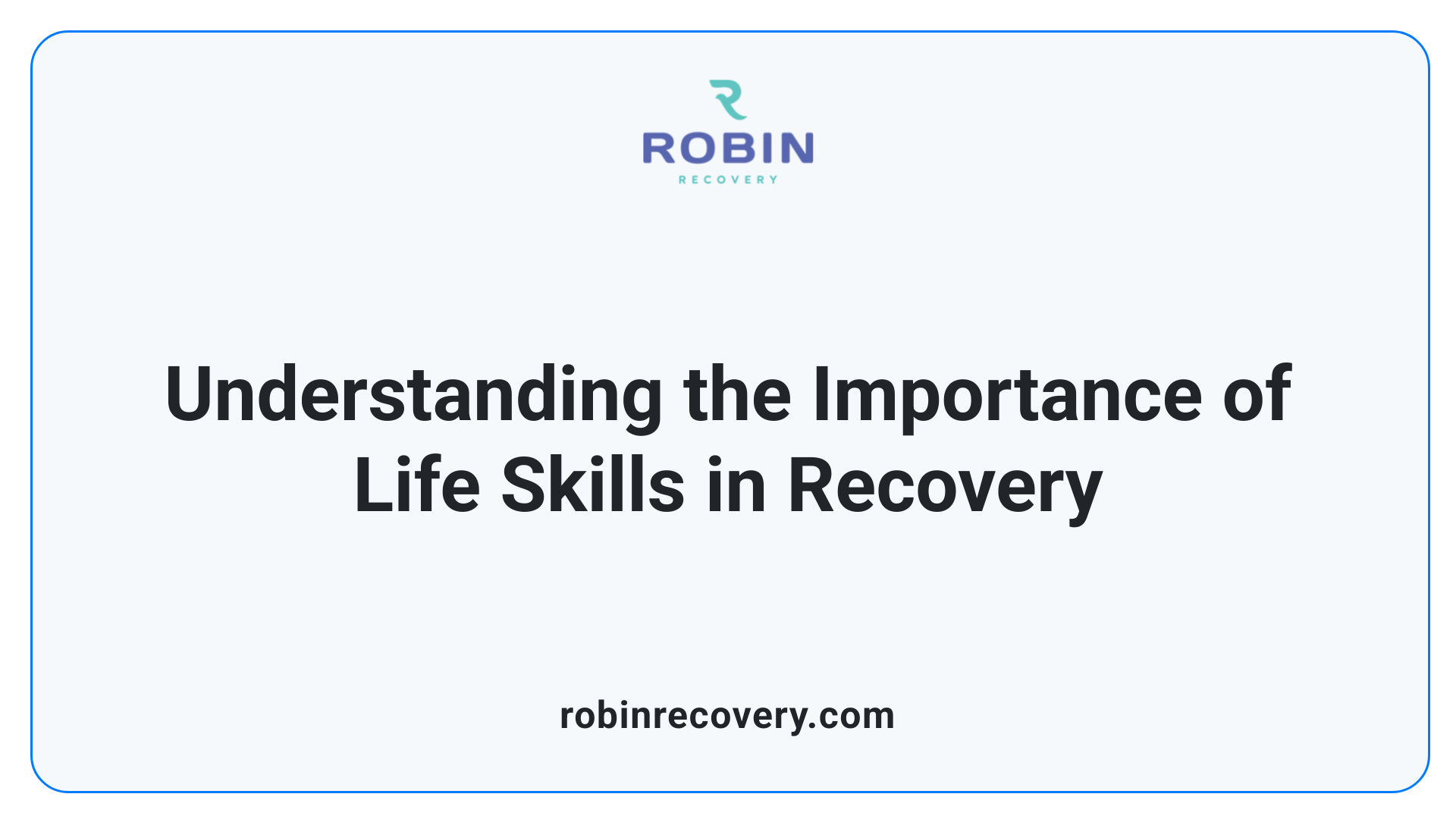
What is the purpose of life skills training in addiction recovery?
Life skills training in addiction recovery serves to equip individuals with essential skills needed for independent living and successful reintegration into society. This training focuses on developing skills in various critical areas:
Moreover, life skills training emphasizes self-care practices and emotional regulation, aiding individuals in managing triggers effectively and building healthier relationships.
Ultimately, this training fosters resilience and empowers individuals to make informed decisions. With improved coping mechanisms, confidence, and life skills, individuals can achieve sustained sobriety and a higher quality of life beyond treatment.
Essential Life Skills for Preventing Relapse
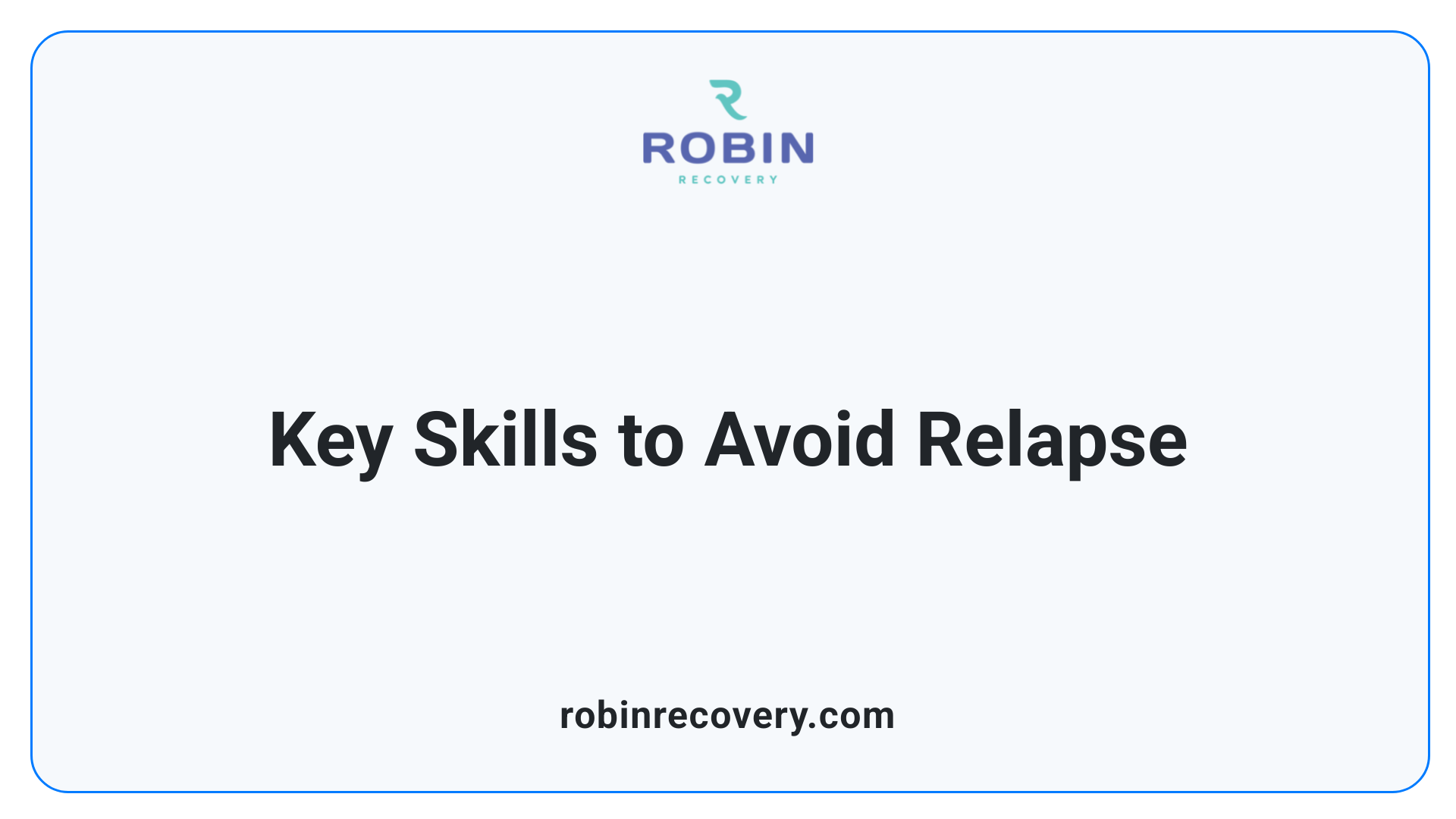
What life skills are essential for avoiding drugs and substance abuse?
Essential life skills for avoiding drugs and substance abuse include:
Incorporating self-care practices, like maintaining hygiene and developing healthy routines, is also vital. These help in managing urges and promoting overall well-being.
Moreover, enhancing social skills is crucial for establishing a supportive network, which is essential for long-term recovery. Individuals can develop stronger relationships that encourage positive behavior and shared experiences.
Time management and financial management skills contribute to a stable lifestyle post-recovery. Managing time effectively can replace idle hours that may lead to substance use. Financial awareness addresses potential stressors linked to economic instability.
Education and awareness around personal risk factors and the influence of peer pressure further empower individuals. This preparation allows individuals to approach social situations with confidence, knowing their boundaries and coping strategies.
Access to supportive resources, like SAMHSA’s National Helpline, reinforces these skills, ensuring individuals have guidance in their recovery journey.
Developing Core Skills for a Sober Lifestyle
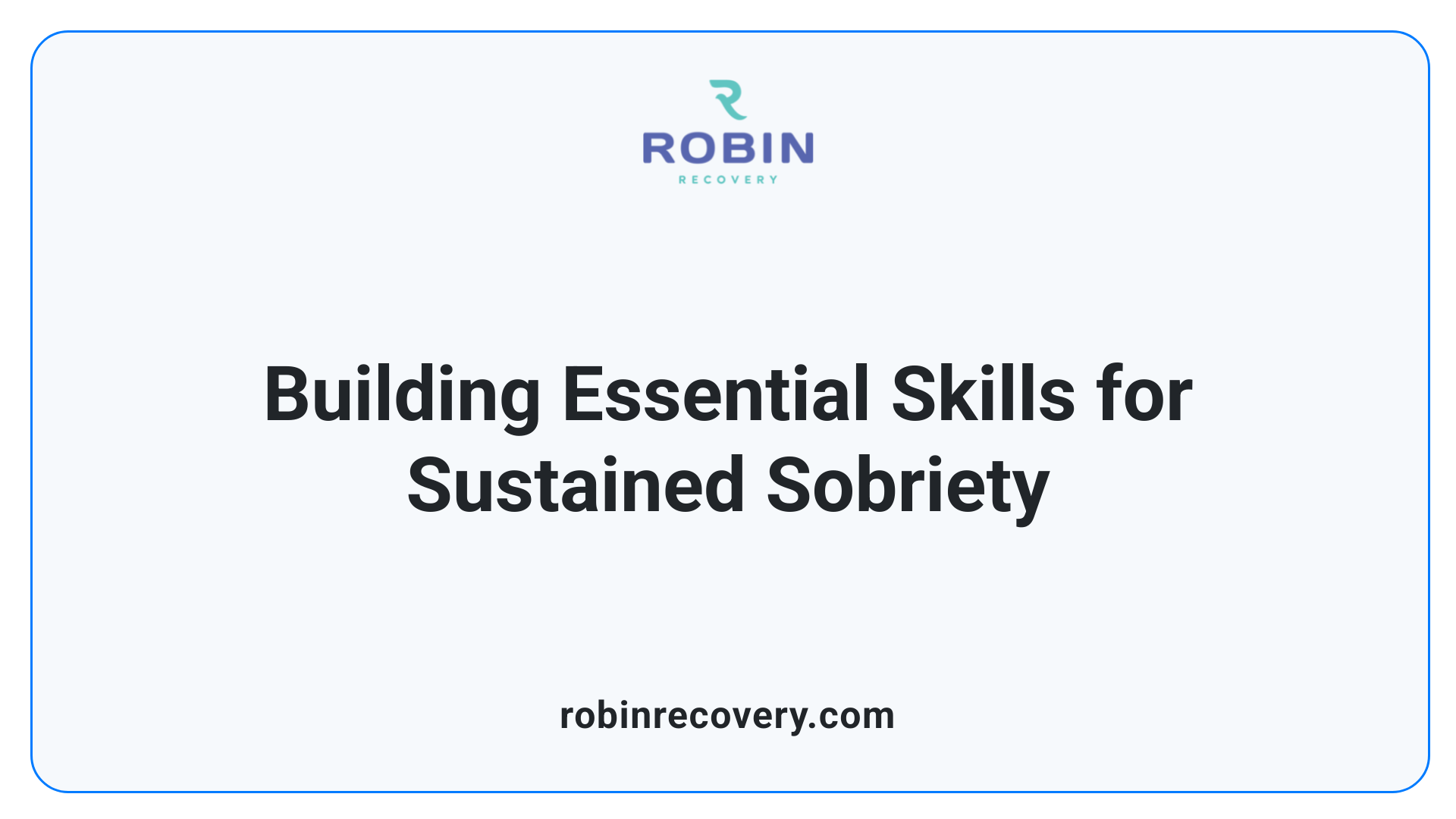
Communication, Problem-Solving, and Decision-Making
Effective communication, problem-solving, and decision-making skills are the cornerstones of successful recovery. These skills empower individuals to express their needs and feelings clearly, navigate challenges creatively, and make informed choices that prioritize sobriety. For many, enhancing these skills can lead to stronger relationships and reduced conflict, which are crucial for maintaining a support network.
Personal and Interpersonal Skill Development
Recovering from addiction involves rebuilding personal and interpersonal skills, such as empathy, resilience, and healthy relationships. Engaging in life skills training provides opportunities to practice interpersonal communications through role-playing and group discussions. These activities help individuals learn how to foster positive connections and manage conflicts without reverting to past destructive behaviors.
Emotional Regulation Techniques
Learning emotional regulation techniques, including mindfulness and stress management, is vital for preventing relapse. Individuals are guided in identifying triggers and emotions, allowing them to respond to stressors constructively. By integrating practices such as meditation and relaxation techniques, individuals can build a toolkit for managing feelings effectively, supporting their journey towards a stable, sober lifestyle.
The Structure of Life Skills Training Programs
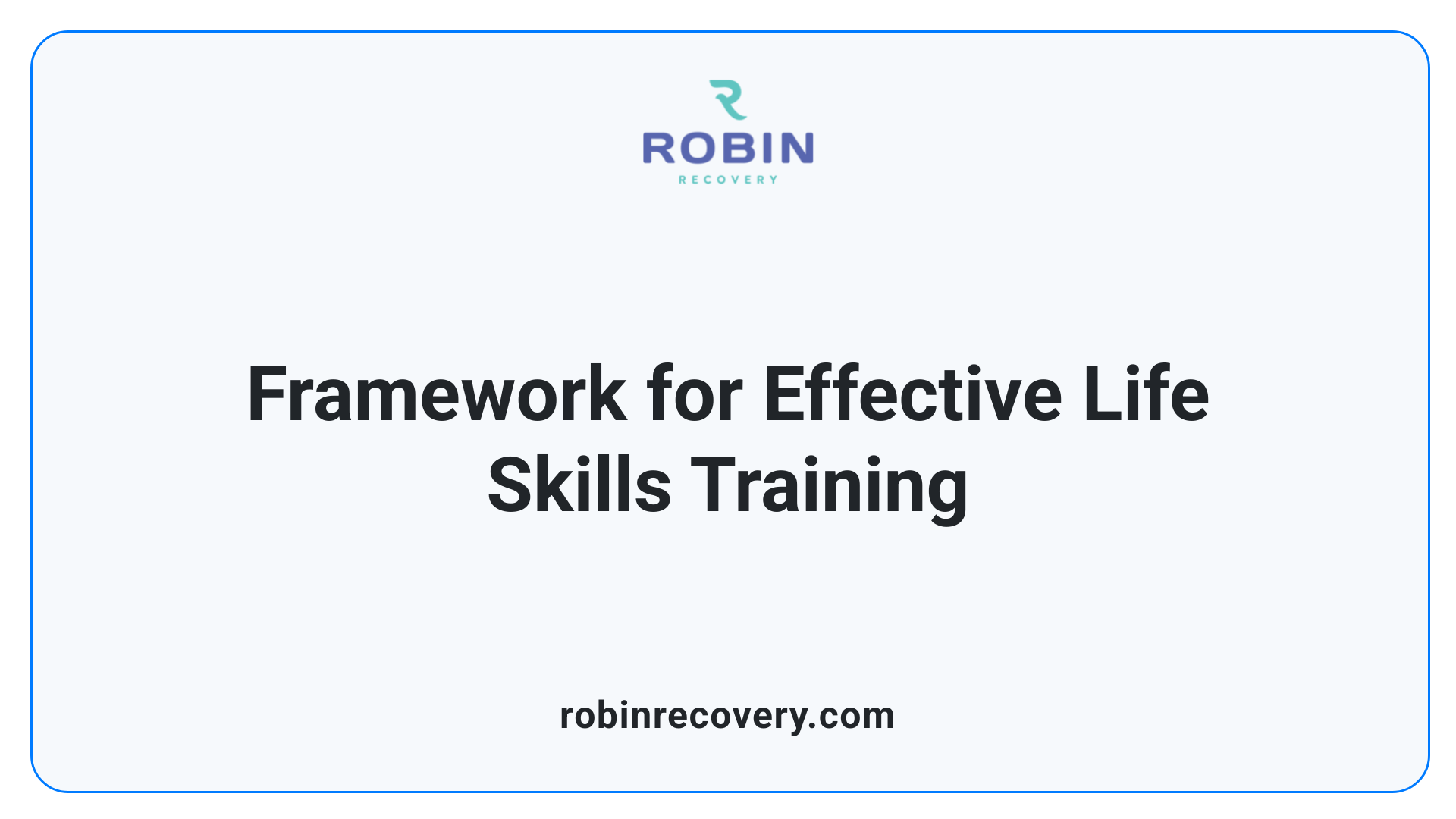
What methodologies and programs support life skills training in addiction recovery?
Life skills training in addiction recovery utilizes a variety of methodologies and programs aimed at fostering essential behaviors that promote sustained sobriety. Through structured training sessions, participants learn coping mechanisms, enhance social skills, and improve decision-making capabilities.
Key components of these programs often include:
Specific strategies utilized in these programs consist of:
Overall, these life skills training programs prioritize accountability, encourage consistency, and prepare individuals for employment, significantly aiding in their transition to a productive, sober lifestyle.
Supporting Long-Term Sobriety Through Acquired Skills
How do acquired life skills support long-term sobriety and personal development?
Acquired life skills are pivotal in supporting long-term sobriety and personal development. They foster independence by providing individuals with the tools needed to manage their emotions and daily responsibilities effectively. Skills like emotional regulation and stress management enable individuals to cope with life's challenges without reverting to substance use.
Moreover, developing effective communication skills helps individuals build strong relationships and support networks, which are crucial for recovery. These skills empower individuals not only to express their needs but also to connect with others sincerely, thus reducing feelings of isolation often associated with addiction.
In addition, self-awareness plays a fundamental role in recovery. By gaining insight into their behaviors and triggers, individuals can anticipate challenges and implement proactive strategies to maintain their well-being. This ongoing journey promotes self-care and encourages individuals to adopt a balanced lifestyle, integrating healthy habits like exercise, nutrition, and mindfulness into their daily routines.
Furthermore, setting personal goals and exploring new interests can provide individuals with a sense of purpose and fulfillment, actively contributing to a life free from addiction. By cultivating resilience, these life skills significantly enhance the likelihood of sustained recovery and a higher quality of life.
Skills AreaImportance in RecoveryExamplesEmotional RegulationPrevents relapse by managing feelings effectivelyMeditation, coping strategiesStress ManagementReduces reliance on substances in stressful timesRelaxation techniques, exerciseCommunity BuildingStrengthens support networks for ongoing sobrietyEngaging in support groups, improving social skillsSelf-CarePromotes overall well-being and personal growthNutrition, hygiene practices
Building Critical Daily Routines and Habits
Establishing Stability
Creating daily routines is a cornerstone of successful recovery from addiction. Stable routines help individuals structure their time and activities post-treatment. This structured approach reduces unpredictability in daily life, which can often lead to stress or potential triggers for relapse.
Preventing Relapse Through Routine
A well-defined schedule can significantly diminish the chances of relapse. By integrating healthy habits such as exercise, meal preparation, and time for social interactions, individuals keep themselves engaged in productive activities. Routine not only fosters a sense of accomplishment but also equips recovering individuals with strategies to confront challenges without resorting to substances.
Focus on Self-Care
Effective routines also incorporate self-care, crucial for maintaining overall well-being. Activities such as regular meal planning, personal hygiene practices, and relaxation techniques contribute to the mental and physical health necessary during recovery. Investing time in self-care enhances resilience, enabling individuals to cope with stress or emotional upheaval and bolstering their journey toward a fulfilling, sober life.
Financial Management and Employment Support
Importance of financial stability
Financial stability plays a vital role in recovery from addiction. Individuals who manage their finances effectively are better equipped to avoid the stressors that can trigger relapse. Addressing financial difficulties through structured budgeting and responsible spending not only alleviates anxiety but promotes a sense of security essential for a sustained recovery.
Skills taught in training
Life skills training covers several crucial financial management skills:
Employment readiness
Securing stable employment is a cornerstone of independence in recovery. Training programs often include:
These combined efforts contribute significantly to a successful recovery and reintegration into society.
Community and Support Networks
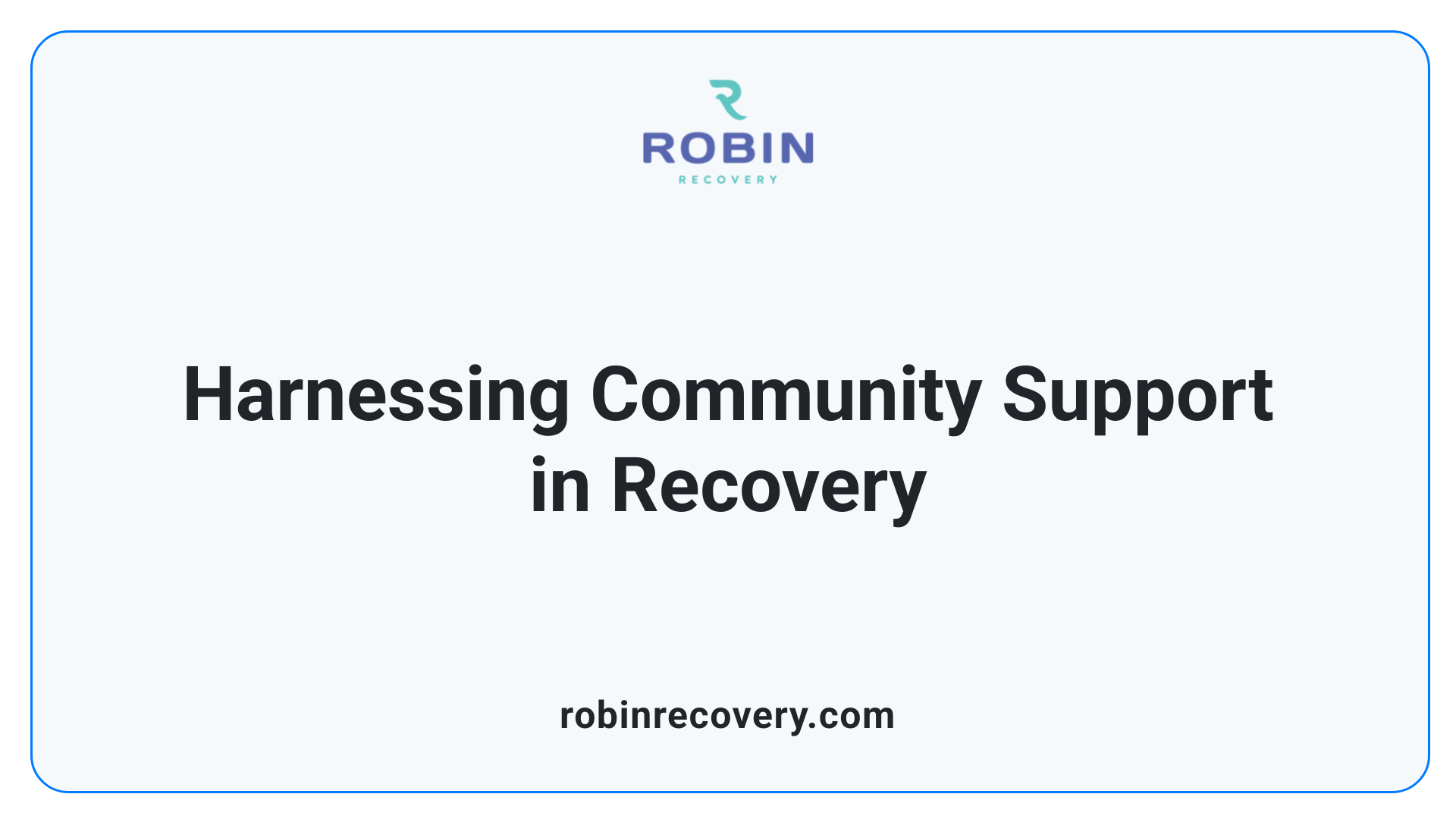
Role of Social Skills
Social skills are fundamental for individuals in recovery, enabling effective communication and healthy relationship-building. Enhanced social skills promote openness in sharing experiences, which is important for emotional connection and support from peers. Activities that strengthen these skills help recovering individuals navigate social interactions without resorting to past habits associated with substance abuse.
Building Attitudes Towards Sobriety
Developing positive attitudes toward sobriety is crucial. Participation in support groups fosters optimism and sharing success stories, which can inspire commitment to recovery goals. A supportive atmosphere encourages individuals to embrace a sober lifestyle by recognizing its benefits, thereby reinforcing their resolve to avoid relapse.
Benefit of Peer Support
Peer support plays a pivotal role in addiction recovery. Engaging with those who have similar experiences creates a sense of belonging and understanding. Support networks can provide practical advice and coping strategies based on shared experiences, bolstering resilience. Furthermore, consistent interaction with supportive peers enhances emotional regulation, reduces feelings of isolation, and promotes accountability in recovery efforts.
Health and Wellness Training
Nutritional Education
Nutritional education plays a pivotal role in addiction recovery. Learning about healthy eating habits helps individuals replace poor dietary choices often associated with substance use. It covers essential topics such as meal planning, budgeting for groceries, and cooking nutritious meals at home. This knowledge empowers them to make healthier food choices that foster both physical and mental well-being.
Physical Fitness Focus
Engaging in physical fitness activities is also a critical component of health and wellness training. Physical exercise not only boosts physical health but also enhances mood and reduces stress. Incorporating activities like walking, yoga, or workouts into daily routines can help individuals manage cravings and improve overall resilience to stressors associated with recovery.
Mental Health Resilience
Mental health resilience is equally important, focusing on strategies to cope with emotional challenges and stress. Techniques such as mindfulness, emotional regulation, and effective communication help individuals navigate life's pressures. Building these skills is essential for establishing a stable and fulfilling life post-recovery, significantly reducing the likelihood of relapse.
Conclusion: Embracing a Life of Sobriety
Life skills training provides the building blocks for recovery, integrating essential tools and strategies for sustaining sobriety and personal advancement. By focusing on comprehensive development in areas such as emotional management, financial independence, and the building of healthy social connections, individuals emerge from treatment better equipped to face life's challenges. Life skills are more than just concepts taught within the walls of a treatment program; they become a way of life that supports recovery every step of the way, promoting a fulfilling and substance-free future.
